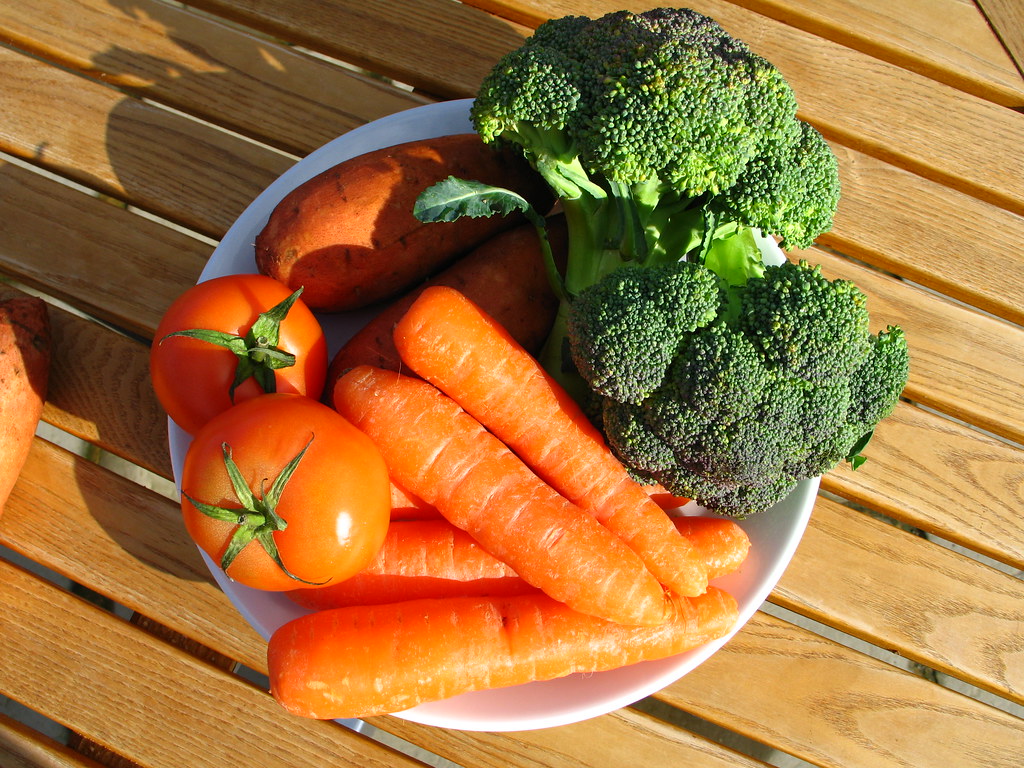Common Myths and Truths About Food

It seems that a new study or experiment comes out on a weekly basis, claiming to expose a common food ingredient or simply to support a new fad diet. How do you if the claims are true, or if you’re being fed myths?
It all comes down to due diligence. When you hear the latest claim, check out the scientific basis of the study and who was behind it. If McDonald’s comes out with a study that proves eating burgers all day is good for you, you may want to approach with a little caution.
The following claims are some of the most common, with some having just hit the scene while others have been around for what seems like centuries. Each can either be debunked or proven with just a little bit of research – check out the results below.
Claim: Carrots Improve Your Eyesight
Reality: Myth (At Least in the Way You Think)
This is probably one of the most widely believed myths out there. It’s rare to find a child who wasn’t encouraged to eat their carrots while at the dinner table, with improved vision as the promise. Sadly, the dream of developing x-ray vision just like Superman simply never came true.
It’s easy to see why this myth has endured. Carrots are packed with beta carotene (aka Vitamin A), which is known to improve overall eye health. However, having healthy eyes doesn’t translate to 20/20 vision.
Carrots will improve your vision if you’re highly deficient of Vitamin A. And carrots aren’t the only vegetable that can help you boost your intake – broccoli, pumpkin, and most leafy greens can do the job equally well.

Claim: Peanut Butter Makes You Fat
Reality: Myth
Dieters these days are so obsessed with numbers that they don’t look at ingredients. This has unfairly lumped peanut butters in the ‘it makes you fat’ camp. While it’s true that peanut butter contains fat, it’s also the case that it comes packed with the good kind of fat. Monounsaturated fat will actually help keep your heart healthy, as illustrated by Harvard Medical School.
Not only that, peanut butter also delivers a range of other benefits. For instance, you can protect yourself from developing benign breast disease. You’re also less likely to develop type-2 diabetes. Just make sure you get the good kind– avoid added fat or sugar if you can.
Claim: Aspartame Causes Cancer
Reality: Myth
Aspartame and other artificial sweeteners are found in most diet drinks – it’s likely that if you don’t for the full-sugar version, you’re ingesting a hefty dosage of aspartame instead. The debate on whether it causes healthy problems is one of the most controversial.
The fact is that there is no conclusive evidence. Most studies conducted thus far have not shown any links between cancer and the artificial sweetener. Studies that purportedly do establish causation simply do not have a large enough data set or have other inconsistencies.
So should we discard the warnings and continue drinking diet sodas? We wouldn’t advise it, especially if you’re consuming soft drinks in large quantities – overdoing anything is never a good thing.
Claim: Eat Fish to Boost Your Brain
Reality: Truth
Can fish really boost your brainpower? Yes, This is particularly applicable in those of us who are getting a bit long in the tooth. This study from Chicago’s Rush University Medical Center highlights the abundance of links between cognitive performance and the regular consumption of fish, including a 60% risk reduction of developing Alzheimer’s disease.
So if you’re suspecting your brain of feeling the knocks of old age, try and add fish to your diet. Once a week is enough to make a difference. Considering the overall benefits of fish anyway, there’s no reason not to include it in your menu.

Research Your Food
Before you take our claims and run with them, do your own research and verify the studies yourself. It’s all about knowing what you’re adding to your diet and being aware of the benefits and downsides of a particular food item. Don’t believe hype or unfounded claims – always look for the numbers and the scientific proof before buying into the next fad.
Edberg M (2014-01-27 06:22:11). Common Myths and Truths About Food. Australian Science. Retrieved: Jul 18, 2025, from https://ozscience.com/health/common-myths-and-truths-about-food/
 Follow
Follow